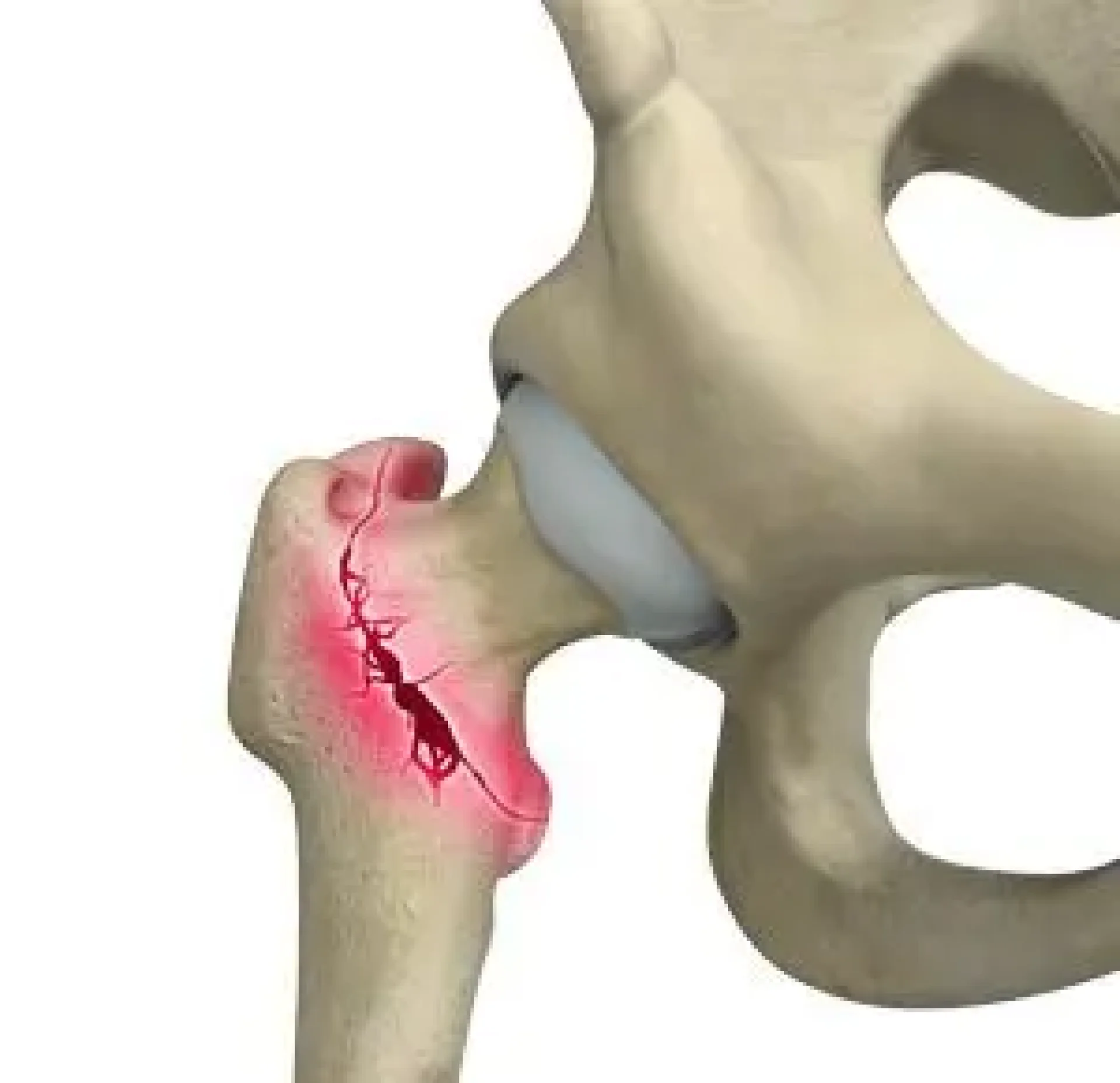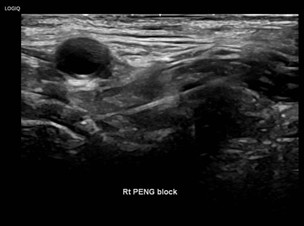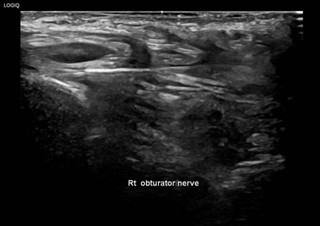Hip Fracture
Last updated: 14 Mar 2025
121 Views

What is an Inoperable Hip Fracture?
An inoperable hip fracture refers to a broken hip that cannot be treated with surgery due to various reasons such as severe underlying medical conditions, advanced age, or high surgical risks. Patients with conditions like severe cardiovascular disease, poor overall health, or extreme frailty may not be suitable candidates for surgical intervention. In such cases, alternative treatments must be considered to manage pain and maintain mobility as much as possible.
What Problems Can a Hip Fracture Cause?
A hip fracture can significantly impact a person's quality of life and overall health. Without proper management, it can lead to:
Severe Pain Persistent pain that affects daily activities and rest.
Loss of Mobility Difficulty standing, walking, or bearing weight on the affected leg.
Bedridden Complications Increased risk of pressure ulcers, pneumonia, and deep vein thrombosis (DVT) due to prolonged immobility.
Muscle Weakness and Joint Stiffness Progressive loss of muscle strength and joint function.
Emotional and Psychological Impact Depression and anxiety due to reduced independence and chronic pain.
What Are the Treatment Options?
When surgery is not an option, the focus shifts to pain relief, maintaining function, and preventing complications. The treatment choices include:
Pain Management
Medications Opioids, nonsteroidal anti-inflammatory drugs (NSAIDs), and acetaminophen for pain relief.
Denervation Techniques A minimally invasive procedure where nerves transmitting pain from the fractured hip are targeted and treated to reduce pain perception.
Denervation Techniques
Denervation is an advanced pain management technique that involves disrupting the nerve signals responsible for pain in the hip area. This can be achieved through:
Radiofrequency Ablation (RFA) A procedure that uses heat to disable pain-transmitting nerves around the hip joint.
Cryoneuroablation Freezing of the nerve to interrupt pain signals.
Chemical Neurolysis The use of alcohol or phenol injections to block nerve transmission temporarily.
What is Phenol Injection for Hip Denervation?
Phenol (carbolic acid) is a neurolytic agent that disrupts nerve function, providing long-lasting pain relief by destroying pain-conducting nerves. It is commonly used in cases where surgical options are not viable, such as elderly or medically fragile patients with hip fractures.
Benefits of Phenol Injection for Hip Pain
- Effective Pain Reduction Significant relief for chronic hip pain without systemic side effects like opioids.
- Minimally Invasive No need for surgery, making it ideal for frail or high-risk patients.
- Long-Lasting Effects Can provide relief for several months to a year.
- Reduces Medication Dependence Helps minimize opioid use, reducing side effects like sedation and constipation.


Ultrasound guided hip denervation with phenol injection
At Vasu Pain Management, we offer advanced treatment options for inoperable hip fractures, including cryoneuroablation and chemical neurolysis with phenol injection. Our procedures utilize ultrasound-guided techniques, ensuring precise targeting, effective pain control, and minimal risk. These minimally invasive approaches help improve patient comfort and quality of life without the need for surgery.
An inoperable hip fracture refers to a broken hip that cannot be treated with surgery due to various reasons such as severe underlying medical conditions, advanced age, or high surgical risks. Patients with conditions like severe cardiovascular disease, poor overall health, or extreme frailty may not be suitable candidates for surgical intervention. In such cases, alternative treatments must be considered to manage pain and maintain mobility as much as possible.
What Problems Can a Hip Fracture Cause?
A hip fracture can significantly impact a person's quality of life and overall health. Without proper management, it can lead to:
Severe Pain Persistent pain that affects daily activities and rest.
Loss of Mobility Difficulty standing, walking, or bearing weight on the affected leg.
Bedridden Complications Increased risk of pressure ulcers, pneumonia, and deep vein thrombosis (DVT) due to prolonged immobility.
Muscle Weakness and Joint Stiffness Progressive loss of muscle strength and joint function.
Emotional and Psychological Impact Depression and anxiety due to reduced independence and chronic pain.
What Are the Treatment Options?
When surgery is not an option, the focus shifts to pain relief, maintaining function, and preventing complications. The treatment choices include:
Pain Management
Medications Opioids, nonsteroidal anti-inflammatory drugs (NSAIDs), and acetaminophen for pain relief.
Denervation Techniques A minimally invasive procedure where nerves transmitting pain from the fractured hip are targeted and treated to reduce pain perception.
Denervation Techniques
Denervation is an advanced pain management technique that involves disrupting the nerve signals responsible for pain in the hip area. This can be achieved through:
Radiofrequency Ablation (RFA) A procedure that uses heat to disable pain-transmitting nerves around the hip joint.
Cryoneuroablation Freezing of the nerve to interrupt pain signals.
Chemical Neurolysis The use of alcohol or phenol injections to block nerve transmission temporarily.
What is Phenol Injection for Hip Denervation?
Phenol (carbolic acid) is a neurolytic agent that disrupts nerve function, providing long-lasting pain relief by destroying pain-conducting nerves. It is commonly used in cases where surgical options are not viable, such as elderly or medically fragile patients with hip fractures.
Benefits of Phenol Injection for Hip Pain
- Effective Pain Reduction Significant relief for chronic hip pain without systemic side effects like opioids.
- Minimally Invasive No need for surgery, making it ideal for frail or high-risk patients.
- Long-Lasting Effects Can provide relief for several months to a year.
- Reduces Medication Dependence Helps minimize opioid use, reducing side effects like sedation and constipation.


Ultrasound guided hip denervation with phenol injection
At Vasu Pain Management, we offer advanced treatment options for inoperable hip fractures, including cryoneuroablation and chemical neurolysis with phenol injection. Our procedures utilize ultrasound-guided techniques, ensuring precise targeting, effective pain control, and minimal risk. These minimally invasive approaches help improve patient comfort and quality of life without the need for surgery.